Year 6
The English curriculum is built around the three interrelated strands of language, literature and literacy. Teaching and learning programs should balance and integrate all three strands. Together, the strands focus on developing students' knowledge, understanding and skills in listening, reading, viewing, speaking, writing and creating. Learning in English builds on concepts, skills and processes developed in earlier years, and teachers will revisit and strengthen these as needed.
In Years 5 and 6, students communicate with peers and teachers from other classes and schools, community members, and individuals and groups, in a range of face-to-face and online/virtual environments.
Students engage with a variety of texts for enjoyment. They listen to, read, view, interpret and evaluate spoken, written and multimodal texts in which the primary purpose is aesthetic, as well as texts designed to inform and persuade. These include various types of media texts including newspapers, film and digital texts, junior and early adolescent novels, poetry, non-fiction and dramatic performances. Students develop their understanding of how texts, including media texts, are influenced by context, purpose and audience.
The range of literary texts for Foundation to Year 10 comprises Australian literature, including the oral narrative traditions of Aboriginal and Torres Strait Islander Peoples, as well as the contemporary literature of these two cultural groups, and classic and contemporary world literature, including texts from and about Asia.
Literary texts that support and extend students in Years 5 and 6 as independent readers describe complex sequences, a range of non-stereotypical characters and elaborated events including flashbacks and shifts in time. These texts explore themes of interpersonal relationships and ethical dilemmas within real-world and fantasy settings. Informative texts supply technical and content information about a wide range of topics of interest as well as topics being studied in other areas of the curriculum. Text structures include chapters, headings and subheadings, tables of contents, indexes and glossaries. Language features include complex sentences, unfamiliar technical vocabulary, figurative language, and information presented in various types of graphics.
Students create a range of imaginative, informative and persuasive types of texts such as narratives, procedures, performances, reports, reviews, explanations and discussions.
(source: www.australiancurriculum.edu.au)
Achievement Standard
Receptive modes (listening, reading and viewing)
By the end of Year 6, students understand how the use of text structures can achieve particular effects. They analyse and explain how language features, images and vocabulary are used by different authors to represent ideas, characters and events.
Students compare and analyse information in different and complex texts, explaining literal and implied meaning. They select and use evidence from a text to explain their response to it. They listen to discussions, clarifying content and challenging others' ideas.
Productive modes (speaking, writing and creating)
Students understand how language features and language patterns can be used for emphasis. They show how specific details can be used to support a point of view. They explain how their choices of language features and images are used.
Students create detailed texts elaborating on key ideas for a range of purposes and audiences. They make presentations and contribute actively to class and group discussions, using a variety of strategies for effect. They demonstrate an understanding of grammar, and make considered vocabulary choices to enhance cohesion and structure in their writing. They use accurate spelling and punctuation for clarity and make and explain editorial choices based on criteria.
(source: www.australiancurriculum.edu.au)
- Plus Plan
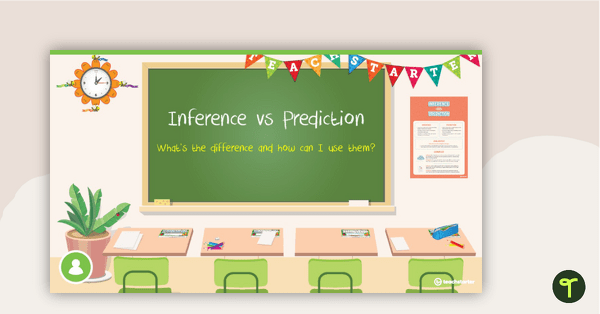
Inference vs Prediction - Presentation
A teaching presentation outlining the similarities and differences between inference and prediction.
- Plus Plan
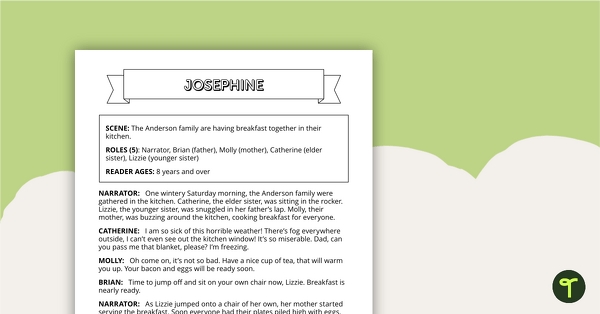
Readers' Theatre Script - Josephine
A script which can be used during readers' theatre or Drama sessions, aimed at students 8 years and over.
- Plus Plan
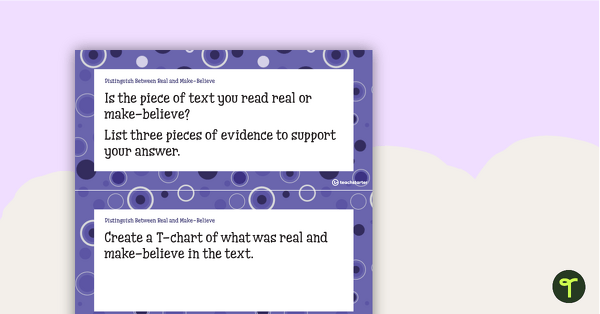
120 Comprehension Strategy Question Cards
A set of 120 open-ended question cards to help students apply comprehension strategies when reading.
- Plus Plan
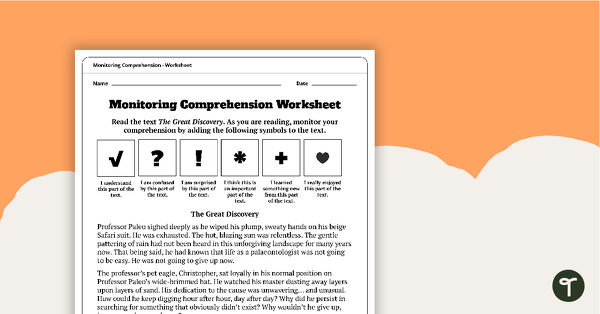
Monitoring Comprehension Worksheet
A 2 page worksheet focusing on the reading comprehension strategy of monitoring.
- Plus Plan
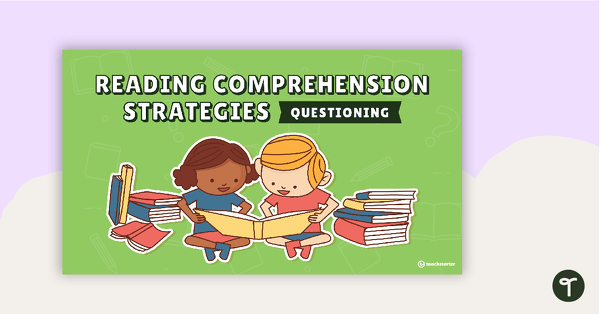
Reading Comprehension Strategies PowerPoint - Questioning
A 15 slide editable PowerPoint template explaining the reading comprehension strategy of questioning.
- Plus Plan
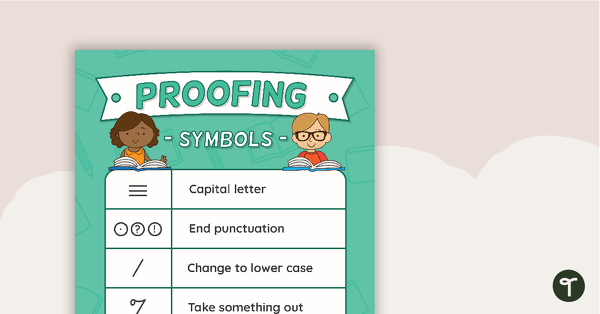
Editing Symbols Chart
Use this editing symbols chart to help simplify the proofreading process for your students.
- Plus Plan
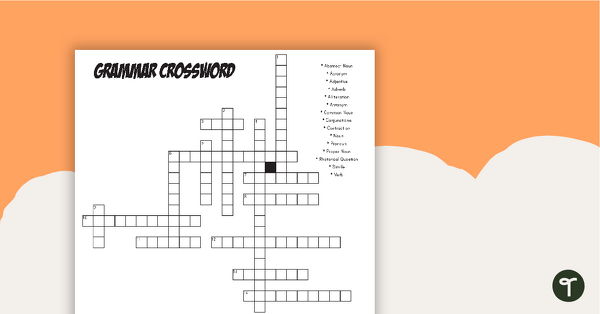
Grammar Crossword
A crossword with clues for various grammar concepts.
- Free Plan
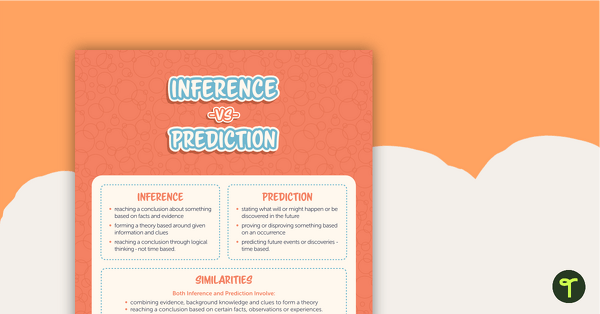
Inference vs Prediction Poster
A poster outlining the similarities and differences between inference and prediction.
- Plus Plan
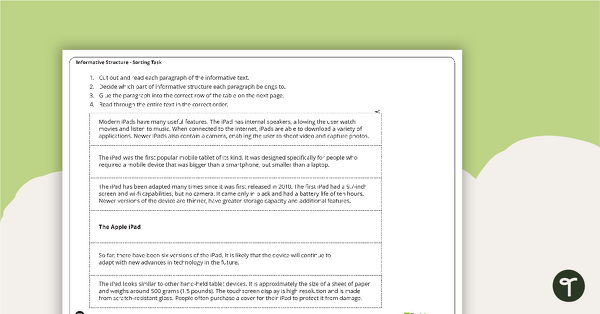
Information Report Structure Worksheet – The Apple iPad
Teach your students about information report structure with this cut-and-paste sequencing worksheet.
- Plus Plan
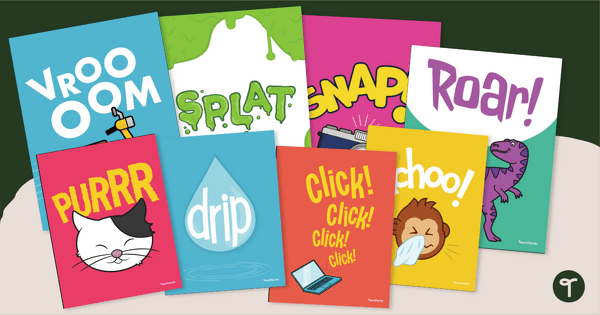
Figurative Language Posters – Onomatopoeia
Help young readers and writers recognise onomatopoeias with a set of onomatopoeia classroom posters.
- Plus Plan
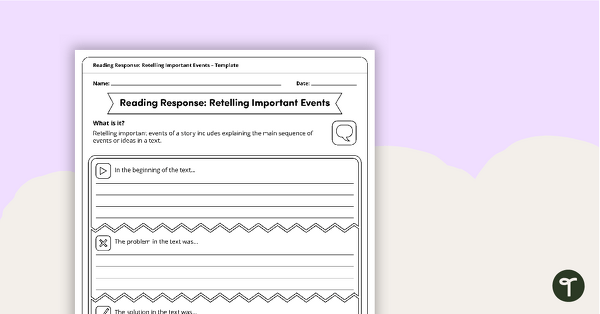
Reading Response Retelling Important Events– Template
A comprehension template for students to revise important parts of a text.
- Plus Plan
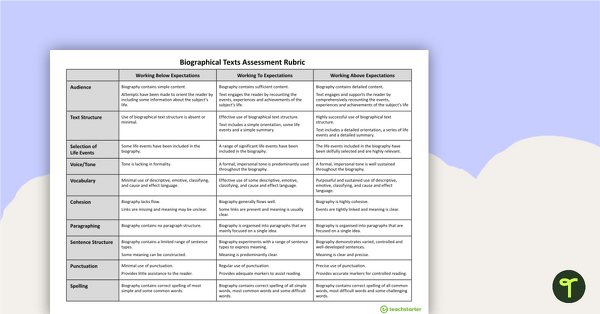
NAPLAN-Style Assessment Rubric – Biographical Texts
Use this NAPLAN-style rubric to assess students’ biography writing as you prepare students for Year 5 tests.
- Plus Plan
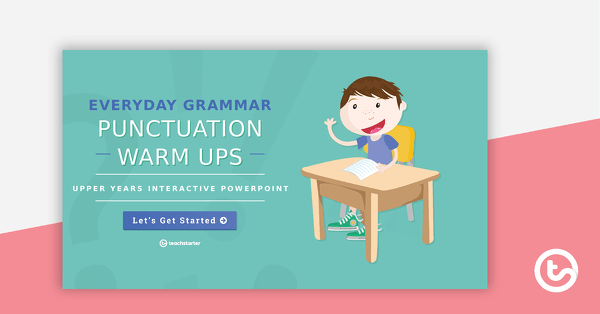
Everyday Grammar Punctuation Warm Ups - Upper Years Interactive PowerPoint
An engaging 44 slide interactive PowerPoint to use in the upper years classroom when learning about grammar and punctuation.
- Plus Plan
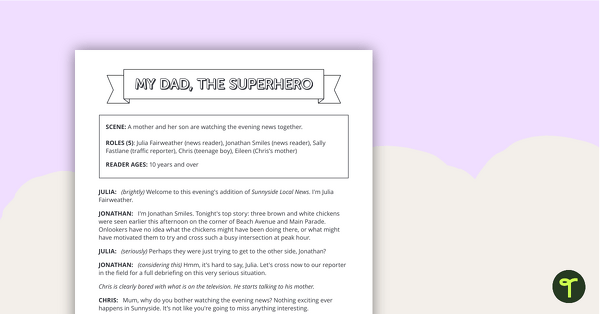
Readers' Theatre Script - My Dad, the Superhero
A script which can be used during readers' theatre or Drama sessions, aimed at students 10 years and over.
- Free Plan
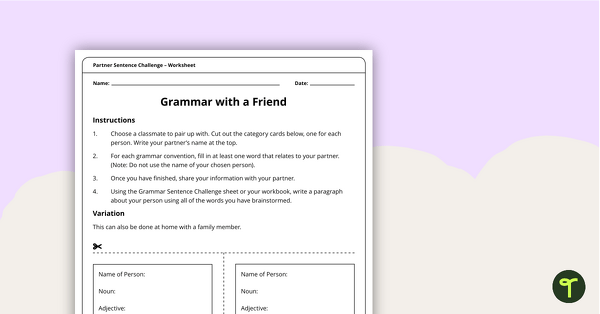
Partner Sentence Challenge Worksheet
A teaching resource to help students consolidate the students’ knowledge of grammar and brainstorm vocabulary for writing.
- Plus Plan
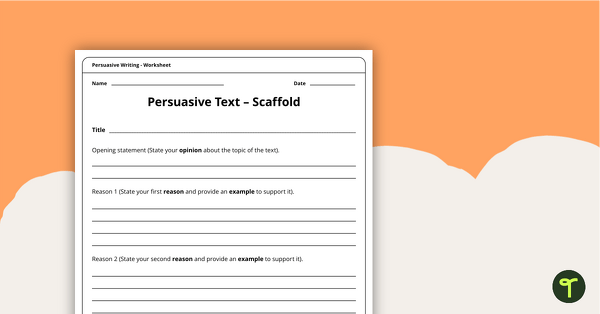
Persuasive Texts Writing Scaffold
A one page scaffolding sheet which can be used to write a persuasive text.
- Plus Plan
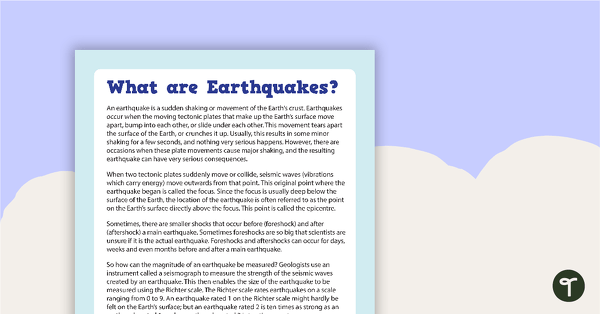
Comprehension - What are Earthquakes?
A comprehension activity about 'What are Earthquakes?'
- Plus Plan
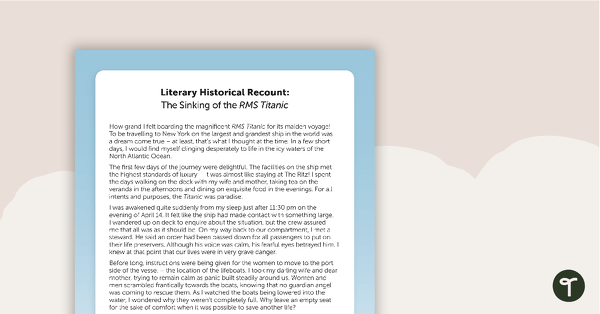
The Sinking of the RMS Titanic - Historical Recounts Comparison Task
A comprehension task to enable students to compare literary historical recounts and factual historical recounts.
- Plus Plan
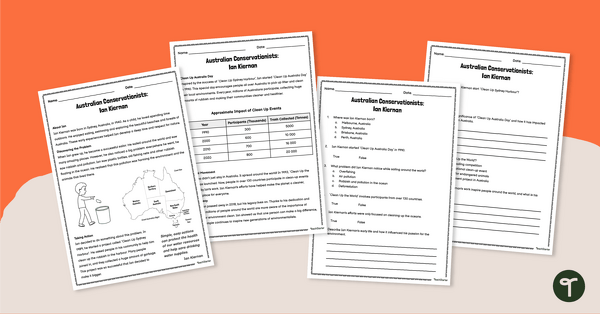
Australian Conservationists: Ian Kiernan – Comprehension Worksheet
Learn about Ian Kiernan and his conservation work with this 2-page reading passage and accompanying comprehension questions.
- Plus Plan
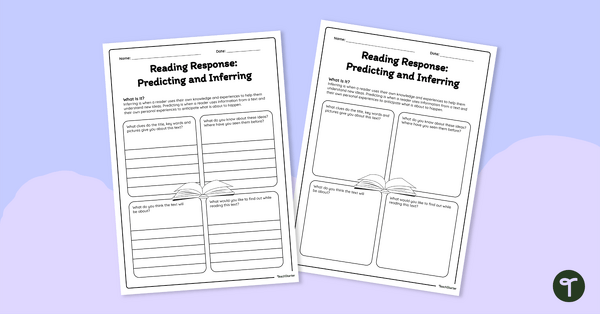
Reading Response Template – Inferring and Predicting
Guide your students to make inferences and predictions with a piece of text using the one-page template.
- Plus Plan
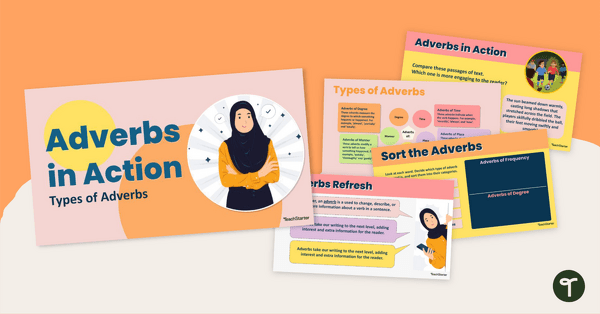
Types of Adverbs Teaching Slides
Explore five types of adverbs in this action-packed adverb adventure teaching slide deck! This resource covers adverbs of time, place, manner, frequency and degree.
- Plus Plan
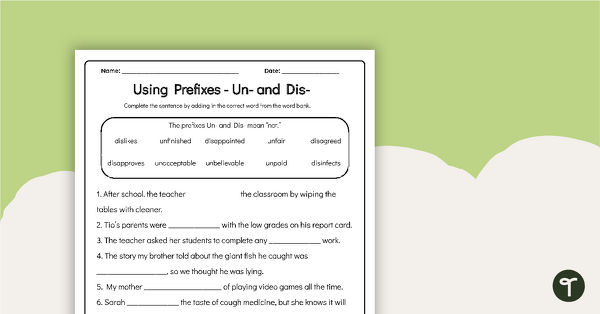
Un- and Dis- Prefixes Worksheet
Build vocabulary skills with a prefix worksheet featuring the prefixes Un- and Dis-.
- Plus Plan
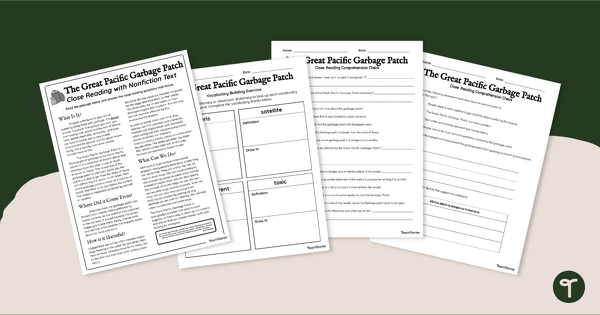
Comprehension Worksheets - The Great Pacific Garbage Patch
Read to learn about the Great Pacific Garbage patch with a printable reading comprehension worksheet pack.
- Plus Plan
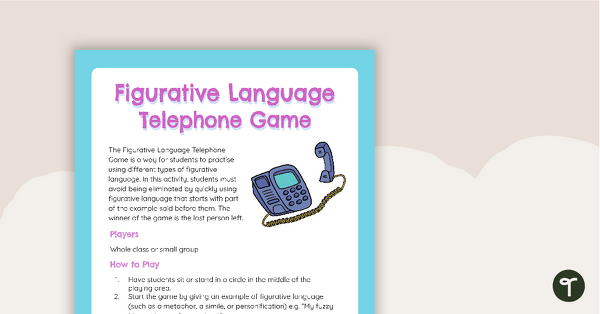
Figurative Language Telephone Game
Play this figurative language game with a group to practise recognising and inventing metaphors, similes and personification.
- Plus Plan
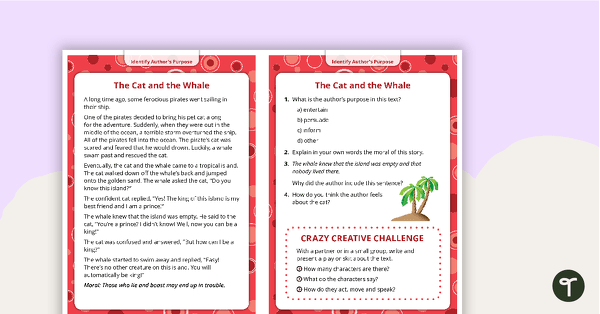
Comprehension Task Cards - Identifying Author's Purpose
A set of comprehension task cards to help students identify the author's purpose when reading.
- Plus Plan
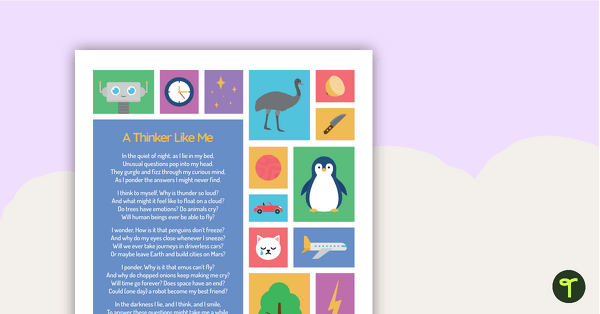
A Thinker Like Me - Read and Respond Worksheet
A comprehension activity related to a poem.
- Plus Plan
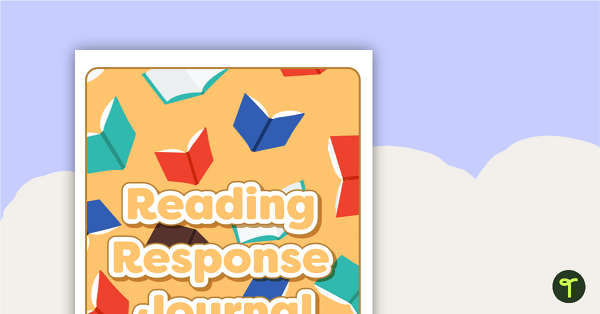
Reading Response Journal – Comprehension Templates
A journal with comprehension sheets designed for students to study texts.
- Plus Plan
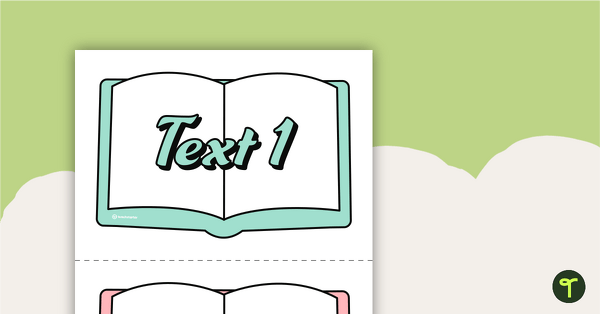
Narrative Writing Bump It Up Wall – Year 6
A visual display for your classroom to help students ‘bump up’ their narrative writing.
- Free Plan
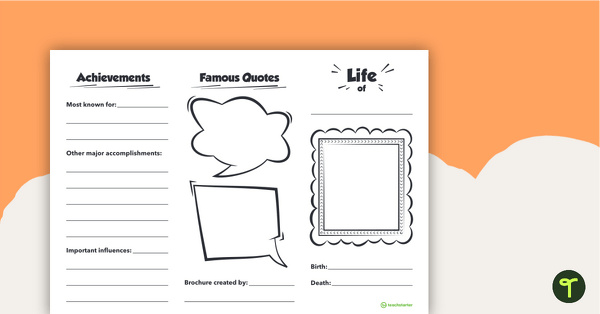
Biography Brochure Template
A brochure template to use when writing biographies.
- Plus Plan
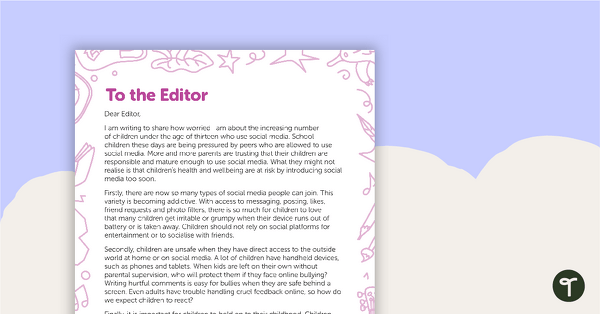
Letter to the Editor: Social Media – Comprehension Worksheet
A comprehension worksheet for a persuasive article about social media.
- Free Plan
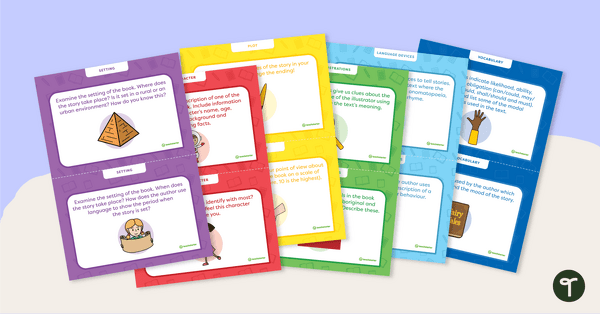
Literature Study Task Cards (Upper Primary)
Explore the wonders of children's literature with this set of 14 literature study task cards for upper primary students.
- Plus Plan
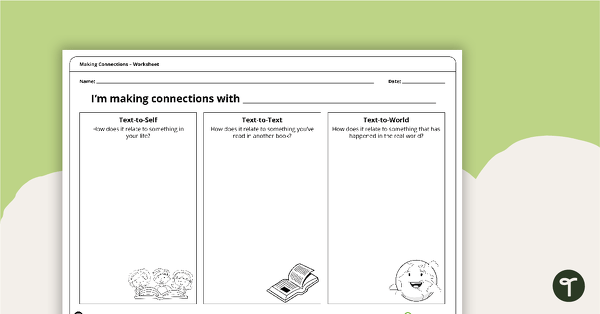
Making Connections - Worksheet
Allow your students to record their connections to a particular text with this Making Connections Worksheet.